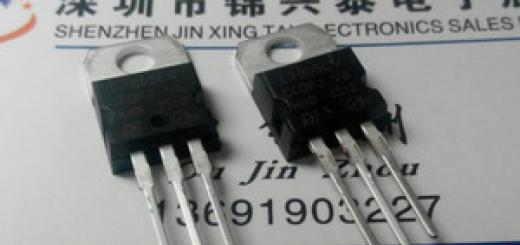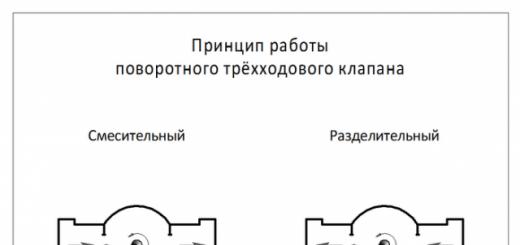Lately there has been an increase in blocking bank cards and accounts of both entrepreneurs and individuals. All the fault of 115-FZ "On counteracting the legalization (laundering) of proceeds from crime and the financing of terrorism." It is this legislative act that bank employees refer to when customers try to find out on what basis Sberbank blocked an account or card.
Page content
FZ-115 "On combating the legalization of income"
This regulatory legal act was adopted back in 2001, but only the last few years the citizens of the Russian Federation have felt its effect on themselves, when, for no apparent reason, banks began to block their accounts and plastic cards. This is due to the fact that since the adoption of the law, amendments and additions have been made to it, which endowed banking institutions with broader powers.
But not only this has led to an increase in cases of blocking. More and more citizens prefer non-cash and more actively begin to use banking products and services. They receive wages, stipends, social assistance, pensions on bank cards, pay with them for goods in stores, cafes, on the Internet, pay for the services of providers, utilities, etc. All this movement of funds is recorded by the bank and in case of suspicious activity or turnover of large amounts on the account, the bank may, on the basis of 115 FZ, refuse to serve the client and apply appropriate sanctions:
- prohibit opening new accounts, replenishing a deposit, issuing and receiving plastic cards, reissuing old cards;
- block all valid cards and settlement accounts of the client;
- block access to remote customer self-service services (Sberbank Online, mobile banking, application, etc.);
- completely disconnect from the banking system;
- leave the client the opportunity to make financial transactions on blocked cards and accounts through the operating cash desk, and if we are talking about large amounts, then it is necessary after coordinating each transaction with the bank.
Attention! If Sberbank has blocked a current account on the basis of Federal Law No. 115, then the account holder may experience certain difficulties when opening accounts with other banking institutions.
Along with the expansion of the powers of banks as a result of amendments to 115-FZ, the degree of their responsibility also grows. Therefore, they are increasingly picky about customers and check the sources of income and other receipts on the account / card for their legitimacy. For violation or evasion of the implementation of the norms of this legislative act, banking institutions risk losing their license. Only in the last couple of years, this has become the most common reason for the termination of activities of banking and financial institutions.

Federal Law No. 115 "On Combating Money Laundering" pursues a single goal - to prevent, by all possible and impossible means, to prevent the financing of terrorism and the legalization of "black" income. This legal act clearly defines the obligations of institutions dealing with financial assets, money and property of citizens, as well as the degree of their responsibility for evading these obligations. The Law refers to such institutions not only banks and financial and credit organizations, but also insurance, microfinance companies, etc.
115-FZ states that each such institution is obliged to conduct financial monitoring and analyze all financial transactions (receipts, transfers, payments and other transactions) of its customers and analyze them in order to detect doubtful or suspicious cash flows.
Whom the bank can block and for what reasons
Analysis and monitoring financial transactions is carried out according to the criteria established by the Central Bank, listed in Regulation No. 375-P (2012). According to this Regulation, any operation that suggests the following can be classified as suspicious:
- illegal cashing out of funds (withdrawal of a large amount of cash from the card/account, if they were credited by bank transfer);
- obfuscation of cash settlement schemes (“transit” operations);
- concealment of the true purposes of financial transactions and parties to the transaction;
- illegal transfer of large sums abroad;
- extremist activity;
- terrorism, etc.
The Federal Financial Monitoring Service (Rosfinmonitoring) includes banking clients in a special list of individuals and legal entities involved in extremist activities and/or terrorism. But it is not necessary to be an extremist or a terrorist in order to be among those clients for whom Sberbank blocked a card or account, referring to 115-FZ. There are many cases when relatives regularly transferred insignificant amounts to their loved ones on the card and their cards were blocked.
Blocking is also possible when a person does not want to take a large amount of cash with him when going on a trip, but deposits this money into a bank account and cashes it out upon arrival at the destination. The banking financial monitoring system may identify such transactions as an attempt to legalize illegally obtained income. Moreover, in this case, it does not matter that the bank has complete information that the same person replenished the card balance and cashed funds from the account. Only the fact of withdrawing a large amount from the card account is taken into account.

Important! Feedback from Sberbank customers indicates that the bank can block the card both in the case of regular financial transactions on the card and in a one-time transaction with a large sum of money.
What to do if your account is blocked by mistake
If, as a result of analyzing the financial transactions of customers, the bank reveals suspicious transactions, the cardholder or account holder is notified. It happens like this:
- The bank sends a message (SMS or email) about the forthcoming blocking of cards and accounts.
- The client receives a request to provide the bank with information (information) on the legitimacy of the origin of funds involved in financial transactions with a card or account, as well as documentary evidence of the economic meaning of such transactions.
- After providing documents confirming the legality of financial transactions, the bank sends a notification to the client about the fact of receipt of the papers and the timing of their consideration.
- After an investigation and verification of the data provided, an appropriate decision is made, of which the cardholder is personally notified.
As a result of the check, the client must be informed when they will unblock access to accounts and remote services and whether they will do it at all. It is not uncommon for a bank to block a card without good reason or by mistake. If you mistakenly blocked a current account with Sberbank, and you don’t know what to do, you need to contact the bank to clarify the situation.
Attention! If the information provided by the client is not enough to establish the legality of the origin of the amounts on the accounts, the bank may send a corresponding request to the branch at the place of registration (location) of the client, where he opened an account, received a card, etc.

To restore access to accounts and self-service services, it is necessary to provide the bank with documentary evidence that all income (receipts to the card) are absolutely legal, expenses are justified. Then accounts and cards should be unblocked, as well as restore access to the Sberbank Online service. Bank employees resolve such issues on an individual basis, taking into account all the features of each specific case.
Important! If Sberbank blocked access to accounts or cards twice during one reporting year, then the client is completely denied banking services, and his account is closed.
The bank can also refuse service and block the card if it has identified some questionable transactions on the card/accounts, requested documents, and the client simply ignored this requirement. In this case, you just need to do what the banking institution asks for, and wait until the documents are considered and a decision is made on them. If the decision of the bank for some indefinite reason was negative and the account was not unblocked, the client can only wait a while and try again to prove the legitimacy of his operations and restore access to accounts and cards. The bank admits this possibility and may reconsider the case a little later.
When the bank notifies the client about the need to confirm the legitimacy of receipts on the card and about the possible blocking of accounts, he necessarily informs in what way these documents must be submitted. It is better to follow the instructions of the banking institution in order to avoid possible difficulties and delays in the delivery and consideration of papers.
The bank may request documents:
- by mail;
- in scanned form to e-mail;
- hand it over in person to an authorized employee of the nearest bank branch.

Regardless of the method of delivery of documents, it is necessary to take into account that:
- in an e-mail with scanned documents, you must indicate your full name in the “Subject” column, and the size of the letter itself should not exceed 12 MB, and it is better that all scanned copies be in PDF format;
- when sending documents by registered mail by regular mail, delivery times must be taken into account, since letters often arrive at the addressee with a significant delay, and the bank, not receiving the required documents within the prescribed time, may make a decision not at all in favor of the client;
- if it is not possible to provide the bank with documentary confirmation of the legality of the sources of their income in time, the banking institution should be notified of this in the manner indicated in the notification and the reasons should be substantiated.
Neither the law nor the regulations of Sberbank have a clear list of documents that can confirm the legality of financial transactions and the economic meaning of transactions, because the sources of profit and expense items can be very diverse. It can be:
- various agreements - contract, lease, sale, etc.;
- accounts;
- invoices;
- receipts;
- settlement sheets;
- tax documents;
- bank statements (on cards and accounts of other banking institutions) and so on.
Attention! In some situations, Sberbank blocks cards based on information received from Rosfinmonitoring about the suspicion of its client in extremist/terrorist activities.
Until the client is removed from the list of persons suspected of terrorism or extremist acts, he will be able to manage his funds on blocked accounts. But he will be able to do this only in the form and size referred to in 115-FZ (clause 2.4, article 6 and clause 4, article 7.4).
Poll: Are you satisfied with the quality of services provided by Sberbank in general?
YesNo
The grounds for including individuals and entrepreneurs in this list are listed in Article 6 (clause 2.1) of the same legislative act. If the client is convinced that he was included in this "black list" by mistake and by accident, he can correct the situation by sending a corresponding application to Rosfinmonitoring.
In order not to be among those to whom Sberbank blocked a card or account on the basis of 115-FZ, you must follow simple tips:
- Reject dubious offers, as well as requests from relatives, friends and acquaintances to transfer funds from card to card, especially when it comes to regular transfers or large sums of money.
- You should not give your cards to other people, even if they are close friends or relatives, only the true owner of the card should use it.
- You can cash out funds from the card only in extreme cases - when it is really necessary.
- Try to pay with cash.
- Individuals should not use their personal card for settlements with clients if they are not officially registered as individual entrepreneurs.
- If you are running a business, you should register as an individual entrepreneur and legalize your activities, as well as open a Business Card to make settlements with clients.
- Sole proprietors should avoid using personal plastic cards for business settlements.
- All payment documents (waybills, checks, receipts, bills, etc.) must be kept and kept in strict order, they can be useful for confirming the legitimacy of financial transactions and unlocking bank accounts.
- Do not ignore the bank's requirement to provide documents confirming the legality of the sources of income and expenses on the card.
- Follow the deadlines set by the bank and try to provide the most detailed information about the origin of funds credited to the card/account in order to increase the likelihood of a decision in your favor.
Blocking bank cards in order to prevent the legalization of illegal income and the financing of terrorist activities may lead to certain inconveniences for Sberbank customers, but this is necessary measure precautions. Anyone who has mistakenly blocked a card or access to bank accounts needs to understand this situation with understanding. To solve this problem, it is enough to provide a package of necessary documents and confirm your non-involvement in terrorism or extremist activities.
In social networks, messages began to spread with renewed vigor that the credit institution was going on a “crusade” on customers. Users send each other information, which refers to the tightening of rules for transferring money between individuals. But you can't believe it.
Anonymous authors claim that there are supposedly checks on accepting money for commercial activities. calls those who transfer funds. Revisions end both for those who translated and for those who received funds. This is followed by fines and questions from the tax service.
Information attack lasting a year
It is useless to warn people, anyone will simply be confused. Checking in all cities is very powerful. First-hand info, - the authors of stuffing assure. They also state that this applies primarily to individuals and their income.
In the video, the TV presenter says that if the client fails to explain the origin of the money in Sberbank, then they will “burn out in his account”. The video also refers to FZ-115 (“On counteracting the legalization (laundering) of proceeds from crime and the financing of terrorism”). According to the law, all transactions in the amount of more than 600,000 rubles are checked.
The account can be blocked when withdrawing or depositing a smaller amount, or when transferring funds to it. Receipts from dubious sources also fall under the attention of the system: anonymous wallets, frequent and stable transfers from the same client, the video says.
"Mass blocking" reported. Their reason is that now Sberbank has automated the verification of transactions by opening a Data Processing Center (DPC) in St. Petersburg. Previously, this function was performed manually by operators, much passed by their attention. The new system promises an error of 10%.

A year ago, Sberbank already fell under an information attack. The text of the message of anonymous authors is one to one similar to the current one. Then the official representatives of the credit institution stated that blocking the sender's and recipient's cards is possible only if incorrect information (full name, code word, passport data, etc.) is provided during the voice confirmation of the operation. In this case, the initiator of the call is only the client himself.
The Bank does not block customer accounts, but may restrict remote account maintenance or refuse to complete a transaction if its economic meaning is unclear. Banks are required to analyze transactions made by clients, according to the criteria established by the Bank of Russia, the press service of the Tatarstan branch answered.
The response explains that information about refusals is accumulated by the Central Bank in a single list and communicated to all credit institutions and that it can be taken into account by other banks when evaluating the client's activity on the account.
Urban horror stories about financial horrors
Sberbank opened a data center in St. Petersburg back in 2011. In addition, FZ-115, which obliges to double-check transactions of 600,000 or more rubles, was adopted in the current version of the federal law back in 2010. But the amount of 600,000 rubles itself appeared in the law earlier - in 2002.

Rumors that Sberbank is massively blocking customer cards have been going around in circles for at least a year. Sometimes it seems to me that we have such a modern content of urban legends-horror stories, since these stories are not really confirmed, - says the head of the Financier portal Anastasia Potekina.
At the same time, the expert continues, blocking of cards occurs, with which well-intentioned citizens, although not without inconvenience, but quite simply cope - they call, waste time, and in the end they still achieve unlocking. Similar procedures on the same grounds (everything within the framework of FZ-115, instructions and letters based on it from the Central Bank) are performed by other commercial banks.
It's just that, according to the law of large numbers, Sberbank is more noticeable against the general background. He really checks. All banks are tested. Just while attention is focused either on large numbers, or on frequently repeated operations with a large number of transactions, - Anastasia Potekina is sure.
The bank is not interested in blocking cards or customer accounts
There is such a thing as banking secrecy (Article No. 26 of the Federal Law “On Banks and Banking Activities”), according to which banks can transfer information about transactions, including individuals, to federal executive authorities, for example, the Federal Tax Service, according to their the same request, - IFC Markets analyst notes Dmitry Lukashov. According to him, Sberbank itself is not interested in worsening relations with its customers, so you can’t trust stuffing in social networks.

If the client is interested in tax, then it cannot be ruled out that certain operations will cause her questions. However, the bank itself, even the state bank, is not interested in independently carrying out these functions of the Federal Tax Service.
The expert gives two arguments in support.
First, providing information will alienate customers who are more likely, even if they have nothing to hide, to choose a commercial bank, albeit on a smaller scale.
Secondly, the bank is not interested in blocking cards or customer accounts, since its income is generated, among other things, from the commission for servicing customer transactions.
That is, it cannot be ruled out that the Federal Tax Service may receive data from banks on customer transactions, simply because federal law allows it. However, to say that any market participant, due to its consciousness and independence, has declared a “crusade” against its own clients, is rather strange.
I would advise clients not to believe in rumors, but to be vigilant for the above reasons when making transactions, - Dmitry Lukashov gives advice.
The Kasha Telegram channel posted the text of a letter to the bank and the prosecutor's office in case the bank starts to abuse 115-FZ.
The client made a formidable "cart" to the bank, with a copy to the prosecutor's office. From personal experience, it has been verified that the bank moves better when they start to slow it down “from above”.
The text was this:
"Bank" Sberbank "violated the following provisions of the law:
1. The provisions of Article 858 of the Civil Code of the Russian Federation - "restriction of the client's rights to dispose of funds on the account is not allowed, except for the seizure of funds on the account, or the suspension of operations on the account in cases provided for by law" - without a decision court and in the absence of enforcement proceedings against me;
2. In this case, the Bank limited my right to dispose of my own funds through the remote banking system, despite the fact that from my accounts monthly, in full (according to the Bank's tariffs) and without acceptance, remuneration is paid to the Bank for servicing the settlement accounts using Internet technologies. The Bank unlawfully refused me to carry out operations on the above my accounts using the remote banking system. The bank did not unlawfully recalculate the fee for this service (Article 158 of the Criminal Code of the Russian Federation - theft).
3. Violation of the provisions of paragraph 2 of Article 845 of the Civil Code of the Russian Federation - "the right guaranteed to the Client by law to freely dispose of the funds available on the Client's account";
4. Violation of Clause 2 of Federal Law No. 115-FZ dated August 17, 2001 (as amended) - “transactions with cash ... are subject to mandatory control if (in relation to the counterparty) there are information received in accordance with the procedure established by law about their involvement in extremist activities or terrorism”. In relation to me, given the provisions of the above law, there is no such information, in this regard, the bank does not have the right to limit my rights to dispose of my own money. Thus, there is slander against me - Article 128.1. the Criminal Code of the Russian Federation;
5. Violation of the provisions of 115-FZ, which provide only for “Refusal to perform suspicious transactions” (clause 11, article 7 of this Law), and not the restriction of my rights to use accounts.
In addition, prior to the restriction of my rights to use the account (suspension of operations on the accounts), the Bank did not ask me for any documents on the operations carried out on this account.
Thus, there is also Article 10 of the Civil Code of the Russian Federation - "abuse of the right", Article 285 of the Criminal Code of the Russian Federation - "abuse of official powers" and Article 330 of the Criminal Code of the Russian Federation "arbitrariness" - unauthorized, contrary to the procedure established by law or other regulatory legal act, the commission of any or actions, the legitimacy of which is disputed by an organization or a citizen, if such actions caused significant harm.
6. Thus, without asking me for any documents confirming transactions on accounts, the bank unlawfully classified all transactions on my accounts as doubtful;
7. Violation by the Bank of the provisions of the Central Bank of the Russian Federation - “banking rules cannot contain provisions that contradict the legislation of the Russian Federation” (Instruction of the Central Bank of the Russian Federation No. 2012 No. 2868-U and others);
8. Violation by the Bank of the provisions of Article 16 of the Law of the Russian Federation On Protection of Consumer Rights (and the IP is not a legal entity and applies to consumers) No. 2300-01 dated February 7, 1992 (as amended and supplemented, in particular, as amended on July 3, 2016) - “the terms of the contract that infringe on the rights of the consumer in comparison with the rules established by laws or other legal acts of the Russian Federation in the field of consumer protection are recognized as invalid”;
9. Considering that, according to the Bank's tariffs, for operations carried out using "paper technologies" the amount of the fee is significantly higher than the fee for transactions carried out using Internet technologies, there is a deliberate restriction by the Bank of my rights - Article 163 of the Criminal Code of the Russian Federation ( extortion).
Given the above, I require:
1. Immediately investigate the legitimacy of the actions of the Bank's employees;
2. Within three days from the date of receipt of this appeal, remove all restrictions on my accounts;
3. Recalculate monthly and annual bank fees and provide me with a detailed calculation.
Otherwise, this issue will be resolved in court.”
They transferred money to your account for the sale, for example, of a car, or returned a large debt, and now the account has already been blocked. And until you tell, and most importantly, you do not prove with official documents that these funds were obtained legally, the road to them will be closed to you.
But if you cannot confirm transparency, the amount will simply burn out. This is how Sberbank's security robots work. So far, 80% of complaints are from his clients, but soon other credit organizations will adopt this system.
Causes
Let's start with why your accounts or transfers can be blocked at all. First, for your own safety. For example, if access to money is requested from abroad. Therefore, you need to notify the bank in advance about foreign trips, or at least have a working mobile phone with you. The operation may not be carried out if you pay for the services of some foreign company for the first time, which the bank considers unreliable. You will also have to call and confirm the transaction.

The second possible reason for the blocking is requirement 115 of the federal law on combating money laundering and the sponsoring of terrorism. According to it, banks are required to check all transactions over 600 thousand rubles and not only. The account can be blocked when withdrawing or depositing a smaller amount or transferring funds to the account. The system also pays attention to receipts from dubious sources, for example, anonymous wallets. Or frequent and stable transfers from the same client.
According to the same parameters, the third article is also checked, according to which the work of the account can also be suspended. These are undeclared incomes on which you do not pay taxes. So, at the request of the bank, you will have to provide documents confirming the source of the money. The term for consideration of your certificates is from two to five days. But even after the procedure, the bank may make a negative decision to unblock. Referring to the fact that the papers do not explain the economic meaning of the operation.
As it was before?
So, the mass blocking that has begun now is due to the fact that earlier the screening procedure was not automatic. Suspicious transactions were processed by the operator and made a decision to block. Moreover, the filter was much softer. Simply because human resources would not be enough to analyze all the millions of transfers. Now Sberbank has got super computers. The data processing center is located in St. Petersburg. The computer program analyzes millions of daily transactions and makes an intelligent selection.
It also studies those with whom you most often settle accounts, your income and other information, and makes a decision to block. And the error of the system is only, attention, 10%. That is, the vast majority of owners of blocked accounts were indeed, as they say, not without sin. Representatives of Sberbank said that the System has been implemented, it works and will not slow down.
draw conclusions
Thus, the era when it was possible to transfer money to each other for the repair of an apartment and even for the provision of manicure services at home is over. Now these are traceable signs, for which you will have to answer later.
Try not to withdraw large amounts to bank cards (of any), if you have already transferred them, do not run like a horse to withdraw them immediately, so as not to prove to the tax office that you are not a camel.
For transfers on the Internet, use the anonymous payment system Advanced Cash.
P.S. On June 28, 2018, Vladimir Vladimirovich Putin signed a law (see here), where he gave the right to banks to officially block cards and electronic wallets. The official goal is to counter theft and fraud. As it will be in reality - time will tell.
Three days to report
Recently, banks have simply become “insolent” and have begun to block transfers of even 1,000 rubles! And they began to demand from the client to provide a report for three days. And not only about this operation, but in general for all movements of money in the account. Clients of Binbank, Tinkoff Bank and Sberbank faced such a problem. Allegedly, in this way, financial organizations are trying to resist illegal schemes and fraud - for example, tax avoidance by entrepreneurs.
However, such actions of banks violate a number of articles of Russian legislation. When blocking a card for such small transfers, feel free to contact the reception of the Central Bank and even to the court, because you could transfer this money for medicines to a relative or friend, imagine what consequences this will bring to the bank if your relative does not buy medicines on time.
The maximum that is within the competence of the bank is to receive confirmation from the client that the transfer is made with his consent. And then, if the amount exceeds 600,000 rubles (according to the current legislation - which was confirmed by financial intelligence and Rosfinmonitoring), all other actions of the bank are illegal.











